What is the Best Month to Get Married in the UK? A Season-by-Season Guide
Deciding on the perfect month for your UK wedding can be exciting yet challenging. Many couples favor August due to its summer warmth and increased likelihood of good weather. With schools on break, it’s also easier to have families and friends come together for your big day.
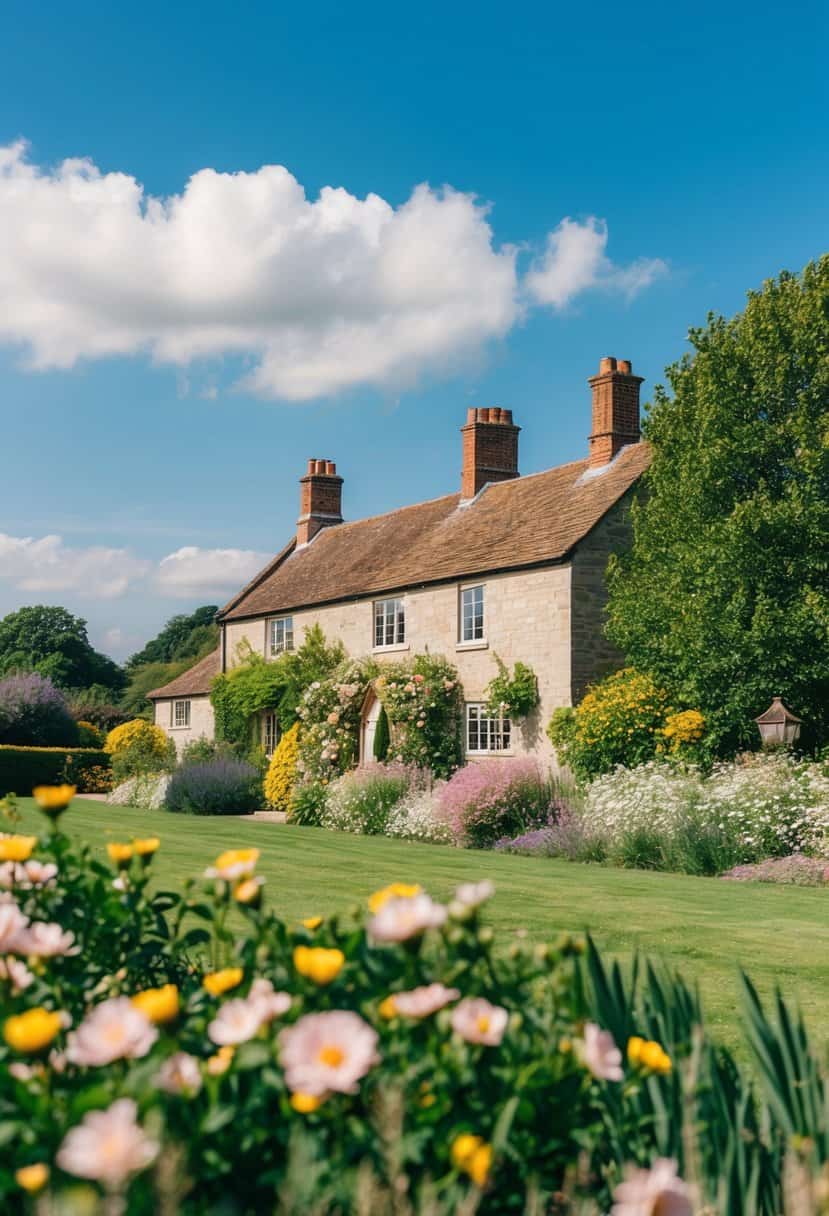
July is another popular option, offering pleasant weather and reduced rainfall compared to August’s typical showers. This makes it a great time for outdoor celebrations if you’re worried about rain. On the other hand, September is gaining popularity, known for providing that magical mix of summer and autumn vibes.
Whichever month you choose, UK weddings benefit from the charm of each season. Whether it’s the long sunny days of summer or the crisp beauty of early autumn, there’s something special about every time of year. Your dream month is out there, just waiting for you to set the date!
Understanding UK Weather Patterns

In the UK, weather can influence your wedding plans significantly. Planning around the weather can help you avoid unwanted surprises and take advantage of seasonal atmospheres.
Summer Weddings and Weather
Summer months like June, July, and August offer warmer temperatures, which are ideal for outdoor weddings. You’ll find that many couples choose August due to its association with balmy weather and school holidays. This makes it a popular choice for families.
However, summer weather can be unpredictable. You might face sudden rain even during the warmer months. It’s wise to have a backup plan if you’re considering an outdoor ceremony. Renting marquees or booking a venue with both indoor and outdoor options can provide flexibility.
Winter Wedding Considerations
Winter weddings in January, February, and November are usually less expensive. Venues often offer discounted rates during these months since it is considered off-peak. This can be a huge advantage if you are working with a tight budget.
While the weather is generally colder, winter brings a magical atmosphere. Snowfall creates a beautiful backdrop for photographs, but it’s crucial to prepare for the chilly conditions. Ensuring that your venue is well-heated and offering warm drinks can enhance the comfort of your guests.
Spring and Autumn Possibilities
Spring months, especially March and April, provide a fresh start with blooming flowers. The weather is mild, and the landscape is particularly picturesque. Spring’s renewal theme pairs well with wedding celebrations, offering unique opportunities for vibrant decorations.
Autumn, in September and October, brings a rich, warm color palette with its foliage. The temperatures are still mild, making it a great time for outdoor ceremonies. If you love the idea of a rustic-themed wedding, autumn provides a perfect backdrop with its natural beauty.
Both spring and autumn present some risk of rain, so be sure to have suitable arrangements. These months, however, often offer venues at reasonable rates compared to summer.
Choosing Your Ideal Wedding Date
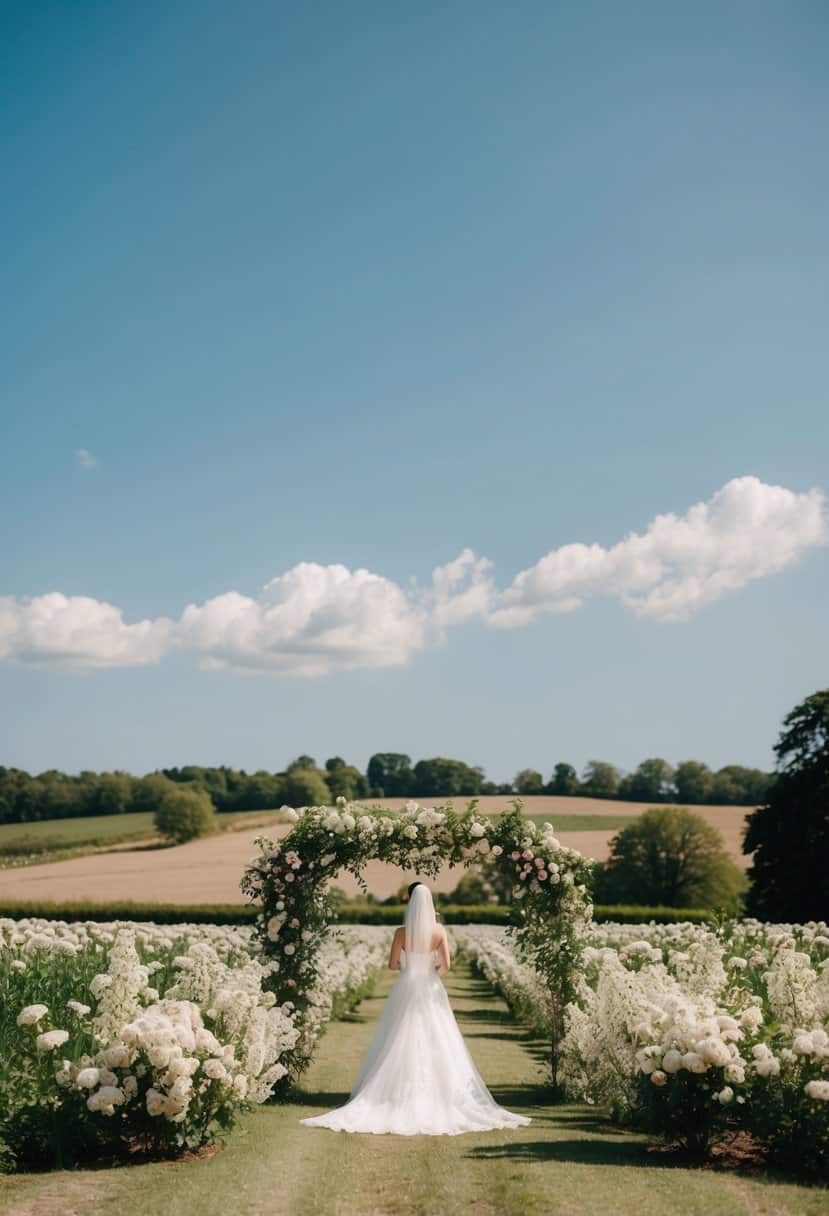
When planning your wedding, selecting the right date involves considering the popular wedding months and the benefits of off-peak times. It’s important to think about the weather, your wedding budget, and what suits your personal preferences.
Peak Wedding Season in the UK
In the UK, the peak wedding season typically spans from late spring to early autumn. June, September, and October are particularly popular months due to their pleasant weather and longer daylight hours.
Choosing a wedding date during these months might mean more availability of seasonal flowers and outdoor venues. However, it’s crucial to book early, as popular venues and services tend to fill up quickly during this time.
During the peak wedding season, you might encounter higher costs for venues and vendors. It’s not uncommon for prices to rise due to high demand. If your heart is set on a specific date during these months, you may need to adjust your wedding budget to accommodate the increased costs.
Off-Peak Times for Budget-Friendly Options
If you’re looking to save money on your wedding, consider planning it during the off-peak months like January, March, and November. During these times, venues and suppliers often offer discounted rates. This makes it an ideal option for couples looking to stretch their wedding budget further.
While the weather might be less predictable, indoor venues can provide cozy and intimate settings. An off-peak wedding date means you’ll have better availability and potentially more choices for vendors.
By carefully weighing the pros and cons of off-peak options, you can balance your vision of a perfect wedding with practical considerations like cost and availability.
Selecting the Perfect Wedding Venue
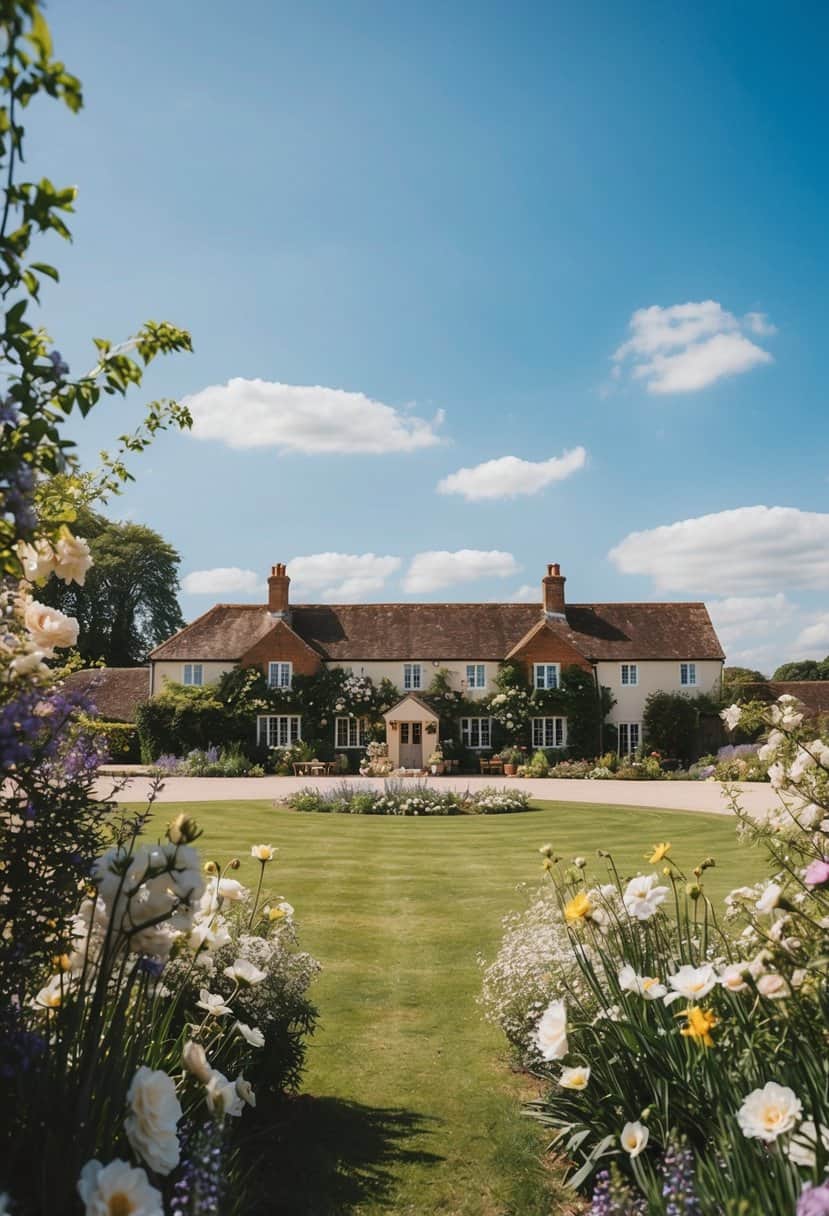
Choosing the right wedding venue is crucial for setting the mood of your big day. Whether you’re dreaming of an outdoor celebration in the sunshine or a cozy indoor gathering, the venue will play a big part in your wedding atmosphere.
Outdoor Venues for Summer and Spring
For a summer or spring wedding, outdoor venues offer a beautiful, natural backdrop. Gardens, vineyards, and parks are some popular choices. You might enjoy a garden wedding with colorful flowers in bloom or a vineyard that provides stunning scenery.
Weather can be unpredictable, even in warmer months, so it’s important to have a backup plan in case of rain. Consider venues with tents or canopies to ensure your guests stay comfortable. Adding string lights or lanterns can enhance the ambiance as the evening begins.
Some outdoor venues also provide on-site catering and event planning services, which can simplify your wedding preparations. With nature as the setting, decorations can be minimal, letting the environment shine. Just make sure the venue has all the necessary facilities like restrooms and parking.
Indoor Venues for Winter Celebrations
Indoor venues are perfect for winter weddings, providing warmth and shelter from cold weather. Historic buildings, ballrooms, and cozy inns are appealing options. These venues often have charming interiors that add character to your wedding.
When choosing an indoor venue, consider the size of the space. Ensure it can comfortably accommodate all your guests without feeling crowded. The decor of the venue should complement your wedding theme and colors.
Many indoor venues offer packages that include catering, decorations, and other essentials, which can save both time and money. Check if the venue provides heating solutions to keep your guests warm and cozy throughout the celebration. Indoor locations also allow for more controlled lighting, enhancing the mood with candles, chandeliers, or fairy lights.
Considering Significant Dates and Events
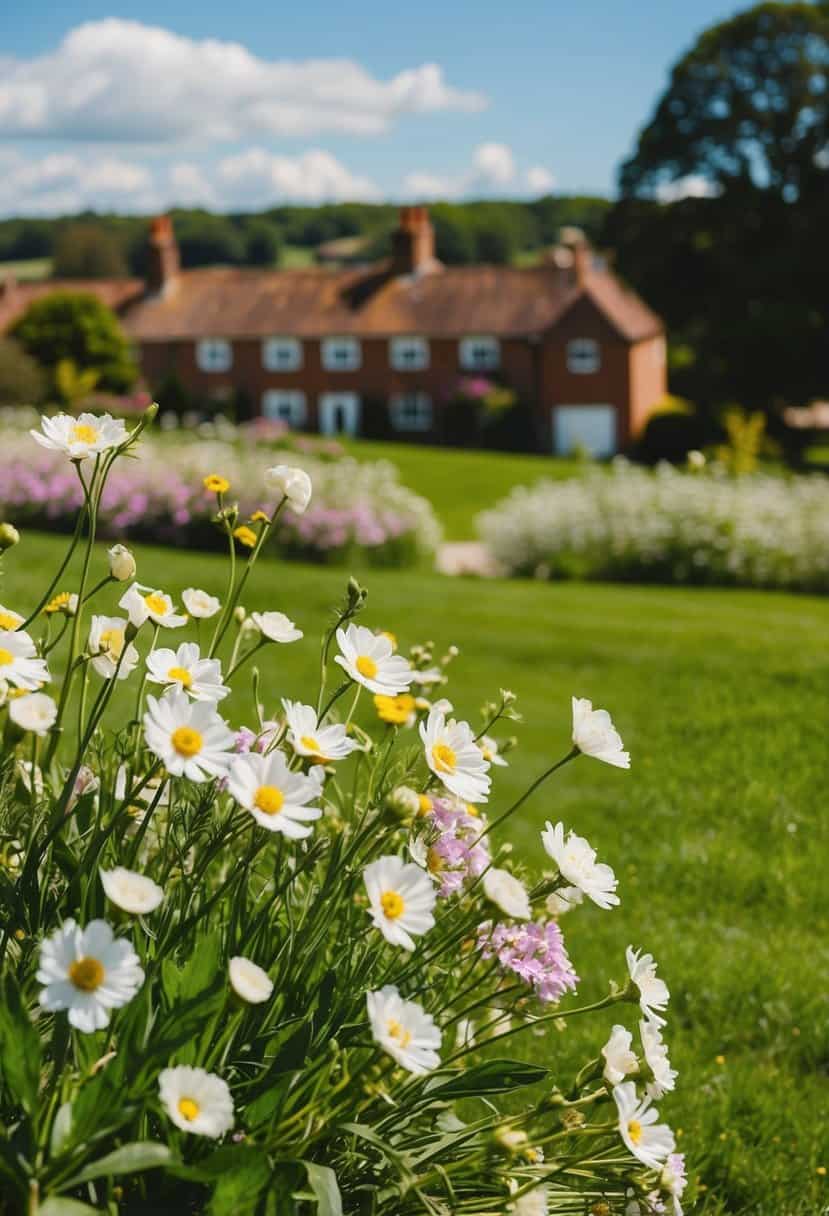
When choosing when to get married in the UK, it’s important to think about special dates and events. These can affect not only the availability of venues but also the experience for your guests.
Bank Holidays and Long Weekends
Opting for a wedding during a bank holiday weekend gives your guests extra time to celebrate without rushing home the next day. This can be especially advantageous if your celebrations span multiple days. However, keep in mind that venues may charge more, and availability might be limited.
Popular choices like a summer bank holiday can offer sunny weather but could coincide with busy travel periods. It’s crucial to book early. These weekends are attractive because they provide guests more time to enjoy the festivities, making them memorable.
Do remember that some guests might have annual plans during these weekends, so a save-the-date notice well in advance is wise. Planning for these holidays adds a touch of convenience, ensuring everyone can fully enjoy your special day.
Sporting Events and Seasonal Festivities
Sporting events can impact your wedding in various ways. For example, the FA Cup Final or Wimbledon might capture the attention of sports-loving guests. Scheduling your wedding during these events might mean some guests are distracted or even absent.
On the flip side, tying the knot during the rugby Six Nations or during a thrilling FIFA World Cup match could offer unique themes and entertainment options. This can add excitement, but be prepared for some guests to focus more on scores than speeches.
Seasonal festivities such as Christmas or New Year’s Eve offer a festive ambiance but can raise the cost due to high demand. Plus, consider that some guests like to spend these times with family. Balancing these factors will help ensure that your wedding aligns with both your vision and your guests’ availability.
Finalizing Your Wedding Month
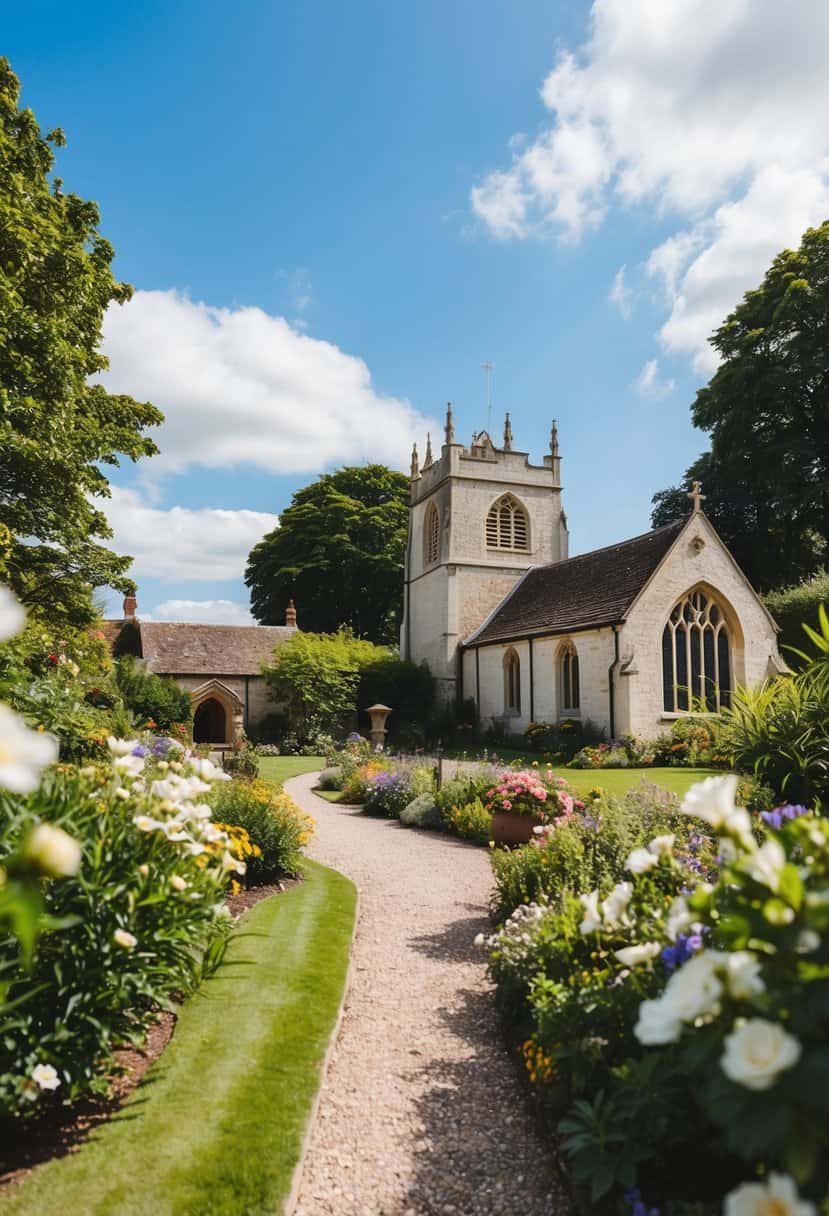
Choosing the right wedding month is crucial for aligning all aspects of your big day. Consider factors like your honeymoon plans, guest availability, and the optimal conditions for capturing stunning photos.
Syncing with Your Honeymoon Plans
When picking your wedding month, think about your honeymoon. If you wish for a tropical getaway, be aware of the destination’s weather patterns. A June wedding might align perfectly with Caribbean dry seasons, ensuring sunny beaches.
Conversely, an October wedding might be ideal if you’re eyeing a European destination in its off-peak season, which often means fewer tourists and better deals. Check for any local festivals or events during your planned honeymoon period to avoid crowds and high costs. Booking early can also help secure the best accommodations and travel rates.
Ensuring Guest Availability
Making sure your guests can attend is essential for a joyful celebration. Consider school holidays and public holidays, as families might find it easier to plan around these.
For example, an August wedding is popular because it coincides with UK school breaks, making it convenient for guests with children. On the other hand, a mid-week or January wedding can be cost-effective but might limit guest attendance due to work commitments. A quick survey or informal chat with close friends and family can provide insights into their availability and help you decide.
Capturing the Perfect Wedding Photos
Weather and light play a significant role in wedding photography. For example, sunny months like June offer longer daylight hours, providing more opportunities for outdoor shots. If you desire vibrant flowers as a backdrop, you might opt for a spring wedding.
An October wedding can deliver beautiful autumn hues, giving your photos a unique charm. Discuss your vision with a professional photographer, who can advise on the best time of day and locations for your pictures. They might suggest a “golden hour” session to capture warm, soft lighting that adds magic to your images.


